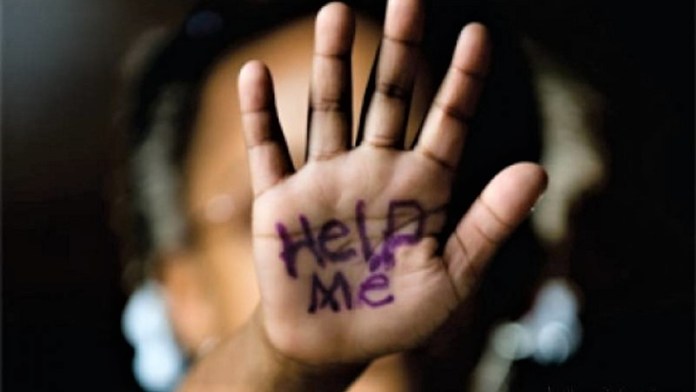For those unaware, April is the child sexual abuse prevention month. But what does it actually mean for us? Sadly, in our country, we don’t get to hear many conversations about this grave subject. But nonetheless, it needs to be spoken about, people need to know how bad the situation is and how can we take steps to tackle this menace.

So, we are no experts on the subject. But we do realise we can certainly make some noise about it and help spread awareness. Which is why we got in touch with organisations in the country doing really hard work in the field of child sexual abuse prevention. Read on for some interesting insights on how bad the situation is when it comes to CSA (child sexual abuse), how can we spread awareness and take steps to tackle this issue.
Sonal Kapoor, founder of Protsahan foundation explained how bad the situation is in our country and what needs to be done to at least kickstart the process of tackling this issue.

Sonal, you have been working in this field for years now. How bad do you feel is the situation in the country?
Sadly, it is actually so bad that these cases are never reported. In fact, whatever little reports we are seeing now, they have started coming in only in the last decade or after the Nirbhaya case. There is a huge amount of work which needs to be done when it comes to CSA prevention- be it sensitizing the media, the stakeholders, punishing the perpetrator and much more. In fact, I’d go on to say that the waters have risen so much that there’s a huge tsunami of broken children and childhoods just waiting to come around.
We teach children good touch and bad touch but nothing beyond that. How can we fix this problem?

That’s true. A-the conversation doesn’t happen. B-when it happens, it ends at good touch bad touch. The solution has to involve parents and educators. This issue is not gender or class specific. Even kids from big, rich families have CSA cases and the mothers don’t want to admit it, let alone doing something about it. So, yes, the conversation definitely needs to go beyond good touch, bad touch. It’s about how you train the educators, which definitely needs the government’s involvement. CSRs need to look at more teacher training and make it a priority. A solution can be found only when all the stakeholders come together, not only by a few NGOs or other organisations.
We often hear how parents themselves are not trusting or supportive of children who have been abused.
First of all, sit with the child and listen to them. For many people, their ego is bigger than the child’s trauma. I can tell you how during one of the CSA workshops, the parents were offended that why are you telling kids about all this ‘adult’ stuff. They just refuse to understand the gravity of the matter. The parents need to have a redressal mechanism.
Definitely some really important issues Sonal took up in this conversation. We got deeper into the problem with our conversation with Mr. Prabhat Kumar, National Thematic Manager, Child Protection from Save The Children Foundation.

How bad do you feel is the situation in the country is when it comes to this issue?
Ministry of Women and Child Development did a study on child sexual abuse in the year 2007 and the figures were definitely alarming. I’d say there is an urgent need to update such a study to know the current extent and nature of the problem. As per the study- children on streets, children at work and children in institutional care reported the highest incidents of sexual assault. And alarmingly, 50% of abuses are persons known to the child or in a position of trust and responsibility. So there, that’s definitely a concern.
How can we make children and their parents more aware of this problem?

The community-based child protection mechanism work (community level support groups for children) is our key focus to raise awareness and prevent child abuse at the community level. Our holistic approach to preventing and responding to child abuse has four steps- Awareness, Prevention, Reporting and Responding. We work on each domain to improve the child safety mechanism.
- Awareness: we ensure that all caregiver (including teachers in schools), community representatives are aware of the problem of child abuse and sexual exploitation and the risks to children. Children and their families are made aware of the standards of behaviour they can expect from caregiver and adults and of how they can raise a concern if any abuse takes place.
- Prevention: we ensure this through awareness raising and discussing on good practice that help children for safety and that there are risk mapping and efforts to minimize the risks to children. In communities and school, we create an environment where children’s rights are respected and sexual exploitation and abuse are prevented through their support.
- Reporting: we ensure that community members and children themselves are clear as to what steps to take where concerns arise regarding the abuse or exploitation of children. This includes popularizing Childline 1098 (a helpline for Children) and other support mechanisms
- Responding: we also train and develop the capacity of key officials in position or authority to support children and ensure that they take action to support, safeguard and protect children where concerns arise regarding their possible abuse and exploitation.
What should parents do in the event of CSA? We often hear how parents themselves don’t take any action.

Parents play an important role and they have to do something personally to help children. By lending a hand or a listening ear at an early stage they may prevent serious abuse. Some of the things they can do are:
- Learn to recognize the signs
- Provide a listening ear
- Offer help
- Give helpful information like helplines, counselling
- Explain that violence is not OK
What do you feel schools can do to help solve this problem?

Life skills education and sessions of safe touch-unsafe touch and making them aware of redressal mechanisms are very helpful and make a lot of difference. This should be mandatory in all schools that they conduct, this focusing on giving fundamental strategies such as they are not just aware of but teach children about the following actions:
- Run Away to Safe Places/People if you find that there is a risk
- Shout for help and keep shouting unless someone helps
- Contact parents, emergency helpline numbers, Childline (1098)
- Contact Police and law enforcement agencies if required
- Schools can also teach basic self-defence to older children
Aren’t these some really helpful and practical actions we all can take and teach our children to be more safe and aware of their surroundings? We also got in touch with Priti Mahara, Director of Policy, Research and Advocacy, CRY India. And she gave us some much-needed insights about the situation around CSA in our country.
So, you work with CRY. We’re sure you’d know how bad the situation actually is in our country.

Unfortunately, CSA is a very crude reality and a serious problem of humongous magnitude. And not just in our country, but throughout the world. Sadly, the issue is that we don’t acknowledge and admit that there’s this problem. So, obviously, if the problem doesn’t exist for people, then how can it have solutions? The 2007 Government study on this issue revealed that how children are often abused by someone from the family or someone close to the family. And after that POCSO (The Protection of Children from Sexual Offences) Act came into light in 2012. Now, the recent data is not available. Even though the problem is getting worse, it’s just not being reported, which is a big issue.
Also, there’s not much conversation happening about what should be done when such a situation arises when CSA is committed.

Yes, because it’s still a taboo in our society, it doesn’t exist for most people. There needs to be various sessions and workshops with children to teach them about safe and unsafe touch. Sadly, this basic step is also not to bring fulfilled. We need to at least start with this. Both parents and teachers need to build trust and talk to children. Apart from them, yes, the various stakeholders also need to be educated on this matter. It should be mandatory for all schools to have a proper child protection policy in place.
Does it happen only in the lower strata of society?
Not at all. It’s a big myth. It happens across all strata of society, including the richest of people.
What can schools do to help?
As I said, there should be a proper child protection policy in place which should lay out a number of mandatory norms. Apart from that, there are certain practical steps which the schools can undertake- being careful with staff recruitment, visitor policy, taking age-appropriate sessions with children on CSA, having CCTV cameras in place, engaging parents and counselling with psychologists. Also, I’d like to add that please support the victims in case of a CSA event. Do not engage in victim blaming and shaming.

Whether you are a parent or not, we hope you got enough insight about this horrible issue of child sexual abuse in our country. And we hope you learnt at least a few practical solutions and preventive measures for it.
Featured image source: pulse.ng




